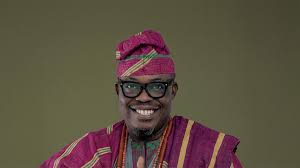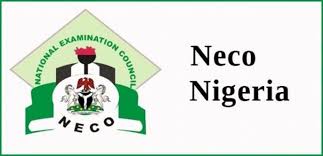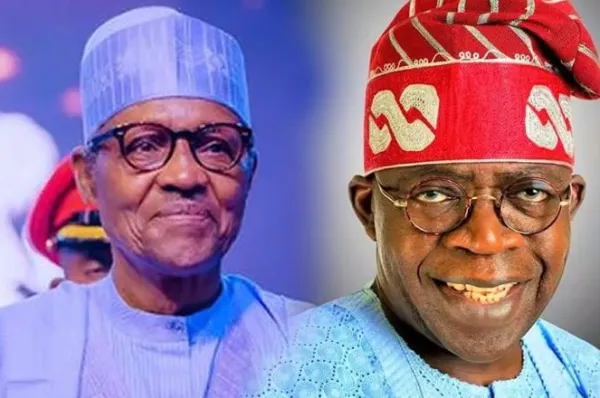A week ago, Nigeria lost one of her most prominent leaders, ex-President Muhammadu Buhari who died at an hospital in London, United Kingdom where he had gone for routine nedical check up. In this analysis. ONWUKA NZESHI looks at his political trajectory and wonders who will inherit the political structure he has left behind.
For over four decades, Muhammadu Buhari, was in the limelight of politics and governance in Nigeria. His first appearance on the stage was on Janyary 1 , 1984 when he emerged as the Head of State after he and his colleagues- in – arms seized power in a military coup. The coup sacked the then civilian administration headed by President Shehu Shagari and effectively brought to an end the second phase of democratic rule in the country.
On that first missionary journey, Buhari who was then a Major General in the Nigerian Army, came with the image of a no nonsense military officer, a puritan and an uncompromising disciplinarian. As the coupists stated in the broadcast made in the early hours of December 31, 1983, the politicians of that era failed to live up to the expectations of the citizenry and the military were on a rescue mission.
As it is normal with military juntas, the Nigerian Constitution (1979) was suspended, the National Assembly sacked and a ban was placed on political activities. Although the Judiciary was not disbanded like the Executive and the Legislature, the courts functioned at the pleasure of the military regime.
In actual fact, the then Federal Military Government was run by Major General Muhammadu Buhari and the Supreme Military Council, They governed by decrees and could do whatever they wanted without consulting the political class. However, thus regimented and autocratic system collapsed within twenty months and Buhari’s government was toppled in a palace coup on August 27, 1985.
SECOND COMING
In the following eight years, Buhari remained in the shadows, apparently brooding over his loss in the power game. As fate would have it, the June 12 saga and the abrupt stepping aside of his successor, President Ibrahim Badamasi Babangida threw up Chief Ernest
Shonekan and subsequently, General Sani Abacha in another palace coup. It was under this equally very authoritarian regime that Buhari was rehabilitated and reintegrated into the society. He rediscovered his groove following his appointment as the Chairman of ghe Petroleum Trust Fund (PTF), a special interventionist agency created to manage the proceeds of excess oil revenue that accrued to the government of the day. It was this assignment that saw Buhari, a recluse with a spartan lifestyle traveling everywhere abd mixing with the high and the low. Contrary to his earlier belief that his regime was toppled because he was hated and unpopular, Buhari was received with open arms across Nigeria. Indeed, he discovered that though many Nigerians were displeased with his harsh policies on corruption and indiscipline while in government, they appreciated his courage and sincerity of purpose. By the time he was through with PTF, he had built a large network of admirers, friends and associates across the country. It was while in the service of the PTF, that he was nicknamed Mai Gaskiya meaning, the Man of Truth, by his admirers.
RETURN OF DEMOCRACY
With the emergence of Olusegun Obasanjo, a former military Head of State as a democratically elected President in 1999, Buhari abd other ex- milirary officrs in Nigerua began to see new possibilities. By 2002, Buhari had joined the All People’s Party (APP) and became the party’s presidential standard bearer in the 2003 General Elections.
In seeking the highest office in the land through the ballot box, Buhari knew it was going to be a different ball game. He has been in that office before but that was through the barrel of the gun and the grace of his colleagues in arms. Now he needed the people and he was smart enough to reconnect with old colleagues in the military service and his new friends from the civil populace. Although he lost the 2003 Election to Obasanjo, he was not deterred by the experience. In 2007, he was back on the presidential race on the platform of the All Nigeria People’s Party (ANPP) but lost again.
Each time he stepped out to campaign he met overwhelming crowds that convinced him that he was popular enough to win the presidential elections. But the truth must be told that he was not supported by the traditional politicians or the political elite who bire the brunt of his jackboots during his first coming as a maximum ruler. He was popular but hus support base was largely among the talakawas – the poor and the downtrodden who saw him as a political messiah.
POLITICAL STRUCTURE
In the course of seeking redress in court, Buhari felt betrayed by the leadership of the ANPP and decided to quit party, He left the party and decided to form a political party of his own, This was how he conceived the Congress for Progressive Change (CPC) and had it registered in preparation for the 2011 presidential election.
Buhari’s political associates in the CPC included key figures who played significant roles in the party’s formation and leadership. Notable among them were Prince Tony Momoh, who served as National Chairman; Engineer Buba Galadima, the National Secretary abd Rufai Hanga, a founding member and former chairman of the party; Major General Mohammed Buba Marwa and Alhaji Tanko Almakura. These individuals, along with others, were instrumental in establishing the CPC as a platform for Buhari’s political aspirations.
But Buhari equally failed to ride on his own horse to power. It took the merger of about four legacy political parties namely the All Nigeria People’s Party(ANPP), Action Congress of Nigeria (ACN),Congress for Progressive Change (CPC) abd splinter elements from the All Progressives Grand Alliance (APGA)and the People’s Democratic Party (PDP)to form the All Progressives Congress (APC) for Buhari to fulfil his life ambition.
With that fusion, the CPC like the others parties to the merger ceased to exist.
However, from time to time references have been made to the CPC as still existing at the background as as a political bloc within the APC which is the ruling party in Nigeria.
THE FUTURE
Before Buhari’s demise, many former CPC nembers and other aggrieved members of the APC were regular visitors to his home in Daura, Katsina State. It is believed that theh were regrouping ahead if the 2027 presidential election. The speculaton making the rounds has been that Presideht Boka Tinubu had fallen out of favour with his predecessor and political associate, Muhammadu Buhari and therefore the CPC bloc won’t be supporting Tinubu’s second term bid. However, this was denied abd Buhari never really addressed thd issue before he departed to the great beyond.
Now, there are fresh and even stronger speculations that with the passage of Buhari, many CPC elements who were loyal to Tinubu and APC because Buhari’s presence may soon part ways with both Tinubu and the party. The knotty qyestil is: who Inherits the mantle of Buhari to lead the battle?
So far, there us no consensus on the matter because the shoes left by Buhari are too big for the feet if hus associates who might want to take over the political structure. Some names have been bandied but none if them has the charismatic personality that could attract the cult following that was Buhari’s strength. Some plutical analysts claim that the Buhari personality is a phenomenon no one should expect to reincarnate in this part of the planet so soon.














